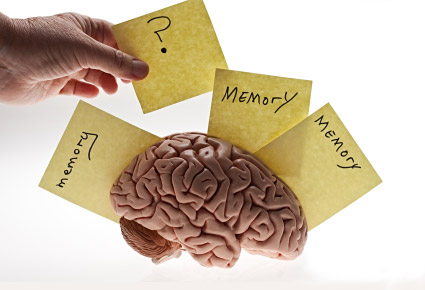
Search
Statistics
We have 222 registered usersThe newest registered user is raheelmemon
Our users have posted a total of 1140 messages in 613 subjects
If you are seeing this, you have attempted to link to the UpToDate widget but are experiencing a problem. Please visit UpToDate for more information.

Functional Impairment in Elderly Patients With Mild Cognitive Impairment and Mild Alzheimer Disease
FORUM FOR PSYCHIATRY RESIDENTS :: Psychiatry :: Psychiatry-Neurology-Psychology discussion :: Psychiatry In Depth
Page 1 of 1
 Functional Impairment in Elderly Patients With Mild Cognitive Impairment and Mild Alzheimer Disease
Functional Impairment in Elderly Patients With Mild Cognitive Impairment and Mild Alzheimer Disease
Functional Impairment in Elderly Patients With Mild Cognitive Impairment and Mild Alzheimer Disease
Arch Gen Psychiatry. 2011;68(6):617-626
Arch Gen Psychiatry. 2011;68(6):617-626

The mild cognitive impairment (MCI) criteria require reports of subjective memory deficits and a score 1.5 SDs below age-adjusted norms on a memory test (amnestic MCI) and require no “substantial interference with work, usual social activities, or other activities of daily living.”
However, research has shown that individuals with aMCI commonly have deficits in instrumental activities
of daily living (IADLs).
Objectives of this study is:
(a) to examine the number, type, and severity of functional impairments across patients with aMCI and those with mild Alzheimer Disease, comparing them with healthy, cognitively intact control individuals.
(b) to identify the clinical characteristics that explain functional impairment in individuals with aMCI and mild AD.
(c) to explore the neuropsychological and neuroanatomical profiles in relation to functional deficits in individuals with aMCI.
Patients:
- 229 control individuals,
- 394 patients with aMCI
- 193 patients with AD
NEUROPSYCHOLOGICAL ASSESSMENT:
- Trail Making Test, parts A and B
- Digit Symbol Substitution Test of the Wechsler Adult Intelligence Scale–Revised
- Auditory Verbal Learning Test
FUNCTIONAL ASSESSMENT
- Pfeffer Functional Activities Questionnaire:
This questionnaire includes following questions-
1. Writing checks, paying bills, or balancing checkbook
2. Assembling tax records, business affairs, or other papers
3. Shopping alone for clothes, household necessities, or groceries
4. Playing a game of skill such as bridge or chess or working on a hobby
5. Heating water, making a cup of coffee, or turning off the stove
6. Preparing a balanced meal
7. Keeping track of current events
8. Paying attention to and understanding a television program, book, or magazine
9. Remembering appointments, family occasions, holidays, and medications
10. Traveling outside the neighborhood, driving, or arranging to take public transportation
IMAGING VOLUME DERIVATIONS
- Hippocampal volume
- Entorhinal volume
- Intracranial volumes
Results & Conclusions:
- Two FAQ items were specific in differentiating the control group from the combined aMCI and AD groups:-
(a) remembering appointments, family occasions, holidays, and medications and
(b) assembling tax records, business affairs, or other papers.
- The severity of FAQ deficits in the combined aMCI and AD group was associated with worse Trail Making Test, part A scores and smaller hippocampal volumes.
- Within the aMCI group, functionally intact individuals had greater hippocampal volumes and better Auditory Verbal Learning Test 30-minute delay and Trail Making Test, part A scores compared with individuals with moderate or severe FAQdeficits.
- Patients with a high number of deficits were more likely to express the apolipoprotein ε4 allele compared with patients with no or few functional deficits.
 Similar topics
Similar topics» Modifiable Predictors of Conversion to Dementia in Mild Cognitive Impairment
» Alzheimer's Disease: Molecular Imaging For Early Detection May Be Available In Hospitals Within 1 Year
» Pervasive Ocular Tremor in Patients With Parkinson Disease
» Imaging Biomarkers for Outcomes in Mild TBI
» Antioxidants for Alzheimer Disease: Caution Raised
» Alzheimer's Disease: Molecular Imaging For Early Detection May Be Available In Hospitals Within 1 Year
» Pervasive Ocular Tremor in Patients With Parkinson Disease
» Imaging Biomarkers for Outcomes in Mild TBI
» Antioxidants for Alzheimer Disease: Caution Raised
FORUM FOR PSYCHIATRY RESIDENTS :: Psychiatry :: Psychiatry-Neurology-Psychology discussion :: Psychiatry In Depth
Page 1 of 1
Permissions in this forum:
You cannot reply to topics in this forum

» L-Methylfolate: Who Will benefit
» Vitamins & Supplements in Clinical Practice.
» Imaging Biomarkers for Outcomes in Mild TBI
» Q.5 Clozapine Neutopenia
» Treating Disorders!
» Cortical Abnormalities in Adults & Adolescents with MDD
» Efficacy of Antipsychotics in Pediatric Acute Mania
» Obsessive Compulsive Disorder in Adults: Which Treatment is Better?